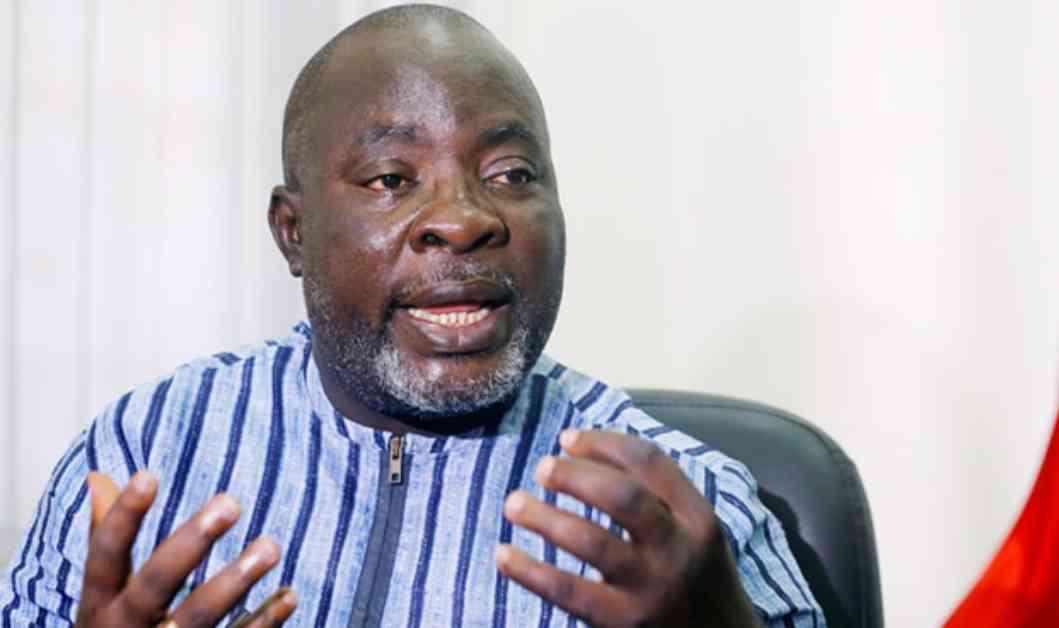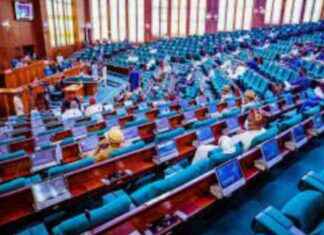Senate’s Confidence Vote on Akpabio Sparks Debate
The recent unanimous vote of confidence passed on Senate President Godswill Akpabio has stirred controversy and raised concerns among political analysts and citizens alike. Kola Ologbondiyan, a former National Publicity Secretary of the People’s Democratic Party, expressed his apprehension over the vote, highlighting the unusual frequency of such gestures towards Akpabio. Ologbondiyan’s remarks came during an appearance on the Channels Television Politics Today programme, where he delved into the implications of the Senate’s decision.
The vote of confidence, moved by Senate Leader Opeyemi Bamidele and seconded by Deputy Minority Leader Olarere Oyewumi during a plenary session, signified a show of support for Akpabio amidst growing tensions within the Senate. This move followed suspended Kogi Central Senator Natasha Akpoti-Uduaghan’s allegations of sexual harassment against Akpabio, further complicating the political landscape.
The Significance of a Vote of Confidence
Ologbondiyan underscored the significance of a vote of confidence, emphasizing that it is typically reserved for times of crisis to bolster the morale of the presiding officer. The recurring nature of such votes within a short span raised red flags for Ologbondiyan, hinting at underlying turmoil within the Senate. He pointed out that the frequency of these gestures indicated a lack of harmony within the legislative body, alluding to a sense of unease that permeated the chamber.
“In the case of sexual harassment and repeated votes of confidence, Senator Godswill Akpabio, as Senate President, appears to be treading uncharted waters with close to four votes in less than two years. This pattern should be a cause for concern for both Akpabio and the Senate as an institution,” Ologbondiyan remarked. He drew attention to the symbolic nature of a vote of confidence, suggesting that its prevalence reflected a deeper issue plaguing the Senate.
Implications of Tax Reform Bills
Shifting gears, Ologbondiyan weighed in on the Senate’s passing of Tax Reform bills for a second reading, commending the move as a step towards enhancing the electoral system. He expressed optimism about the potential impact of these bills if properly vetted through public hearings, highlighting the need for transparency and accountability in the legislative process.
“The passage of the Tax Reform bills marks a positive development that could potentially reshape our electoral landscape,” Ologbondiyan noted. He stressed the importance of public engagement in scrutinizing these bills to ensure they serve the interests of the populace rather than specific groups or parties. By inviting public feedback and scrutiny, Ologbondiyan emphasized the Senate’s commitment to fostering a more inclusive and responsive legislative framework.
As the debate surrounding Akpabio’s vote of confidence continues to reverberate through political circles, the broader implications of such gestures remain a focal point of discussion. With calls for transparency, accountability, and ethical governance growing louder, the Senate faces mounting pressure to address these concerns and uphold the integrity of its decision-making processes. As the political landscape evolves, the significance of each vote and policy decision takes on added weight, shaping the future trajectory of Nigeria’s democratic institutions.












